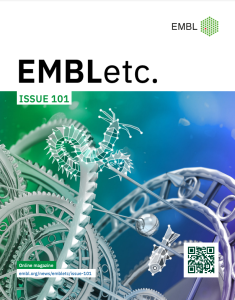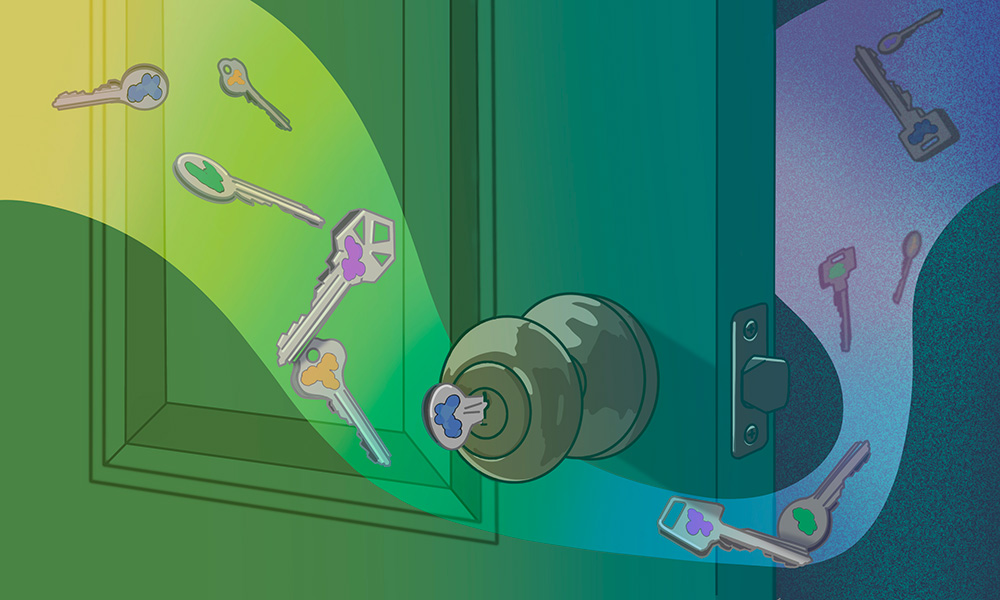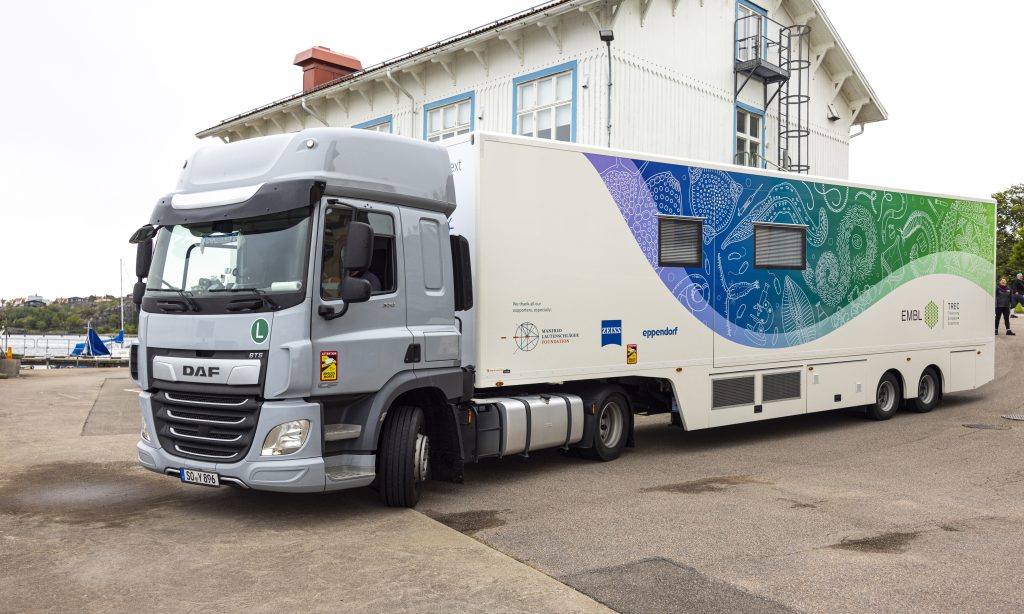13 November 2024
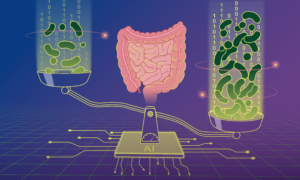
Science & Technology
Scientists have developed a new machine-learning model to predict microbial load — the density of microbes in our guts — and used it to demonstrate how microbial load plays an important role in disease-microbiome associations.
24 September 2024
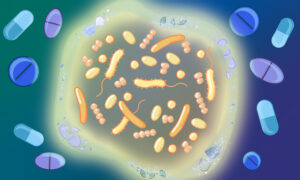
Science & Technology
EMBL Heidelberg researchers compared the effect of drugs on isolated bacteria versus those growing in communities. This is the first study showing that bacteria are more resilient when in community due to cross-protection strategies. This could help researchers design more efficient therapies.
4 April 2023

EMBL Announcements
EMBL’s planetary biology flagship TREC expedition has officially started. The new project applies EMBL's expertise and technologies in molecular and cellular biology to current environmental challenges, and connects with a wide range of research disciplines.
2023
embl-announcementseventsscience
8 March 2023

EMBL AnnouncementsLab Matters
EMBL is leading the TREC project: the first pan-European and cross-disciplinary effort to examine life in its natural context.
2023
embl-announcementslab-matters
28 September 2022
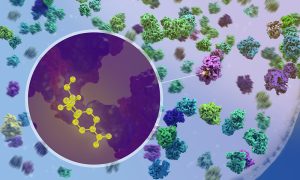
Science & Technology
New research by EMBL scientists shows at atomic detail how antibiotics affect the process of protein production inside bacteria.
2022
sciencescience-technology
15 September 2022

Science & Technology
EMBL researchers used data from over 300 human faecal microbiota transplants to gain an ecological understanding of what happens when two gut microbiomes clash.
2022
sciencescience-technology
15 December 2021
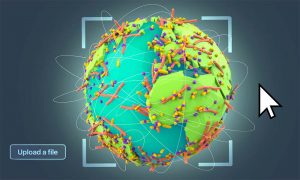
Science & Technology
Bork Group at EMBL Heidelberg analysed a new global gene database to study how genes emerge and spread across various habitats on our planet. In the future, the group will expand the database and use it for studying microbial gene evolution and dispersal at a finer-grained scale.
2021
sciencescience-technology
8 December 2021
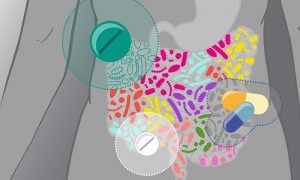
Science & Technology
Researchers studying a massive cohort of European patients have found that commonly prescribed drugs for cardiometabolic disorders can have long-term effects on the gut microbiome. Such effects can complicate the understanding of how disease affects the microbiome and must be taken into…
2021
sciencescience-technology
8 September 2021
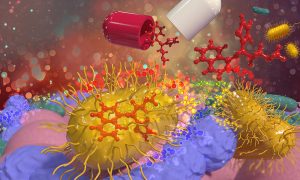
Science & Technology
A new collaborative study led by EMBL group leaders Kiran Patil, Nassos Typas, and Peer Bork has found that common medications accumulate in human gut bacteria. This process reduces drug effectiveness and affects the metabolism of common gut microbes, thereby altering the gut microbiome.
2021
sciencescience-technology
30 July 2021

Lab MattersPeople & Perspectives
Distinctions recognise Peer’s development and sharing of bioinformatics tools as well as his significant contributions to bioinformatics research, education, and services.
2021
lab-matterspeople-perspectives
16 June 2021
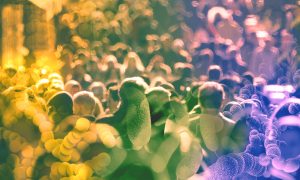
Science & Technology
Researchers investigate how external factors can influence the persistence of microbe species in the human gut
2021
sciencescience-technology
3 June 2021

Science & Technology
Under the innovative Planetary Biology research theme, EMBL scientists aim to understand life in the context of its environment.
2021
sciencescience-technology
25 April 2019
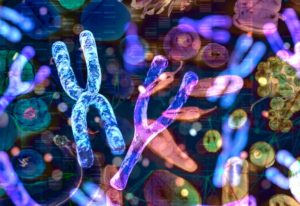
Science & Technology
EMBL scientists have discovered that the proteome is substantially affected by both sex and diet
2019
sciencescience-technology
26 February 2019
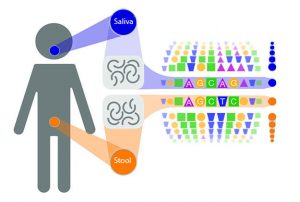
Science & Technology
Many microbes traverse the oral-gut barrier
2019
sciencescience-technology
1 August 2018
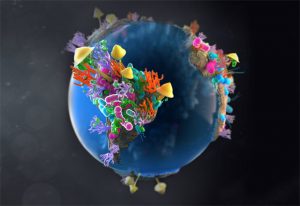
Science & Technology
First global survey of soil genomics reveals a war between fungi and bacteria
2018
sciencescience-technology
11 July 2018
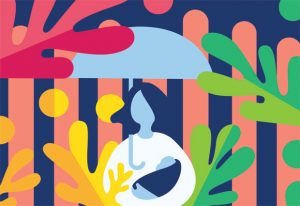
Science & Technology
Scientists show how bacteria and other microorganisms are passed on from mother to child
2018
sciencescience-technology
19 April 2018

People & Perspectives
Dog and human gut microbiomes have more similar genes and responses to diet than previously thought
2018
people-perspectivesscience
19 March 2018
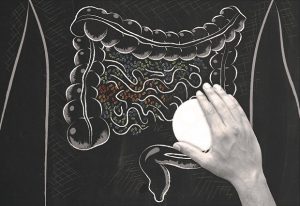
Science & Technology
One in four drugs with human targets inhibit the growth of bacteria in the human gut, and may promote antibiotic resistance, EMBL researchers report in Nature
2018
sciencescience-technology
19 March 2018
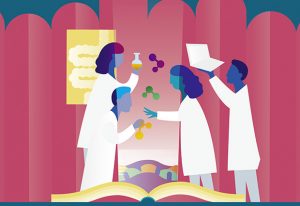
Science & Technology
EMBL scientists show how to grow a wide range of gut bacteria in the lab
2018
sciencescience-technology
20 October 2016

Connections
Participants learn about EMBL’s ocean biodiversity research at the Fall Gala
29 August 2016

EMBL AnnouncementsLab Matters
EMBL scientists regularly receive prestigious awards – meet the latest honourees.
2016
embl-announcementslab-matters
24 June 2016

Lab Matters
27 former Bork lab members joined Peer for a full-day get-together this summer
28 April 2016
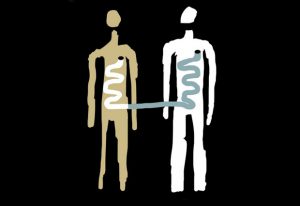
Science & Technology
Stool transplants: finding the right match important, EMBL study shows
2016
sciencescience-technology
20 August 2015
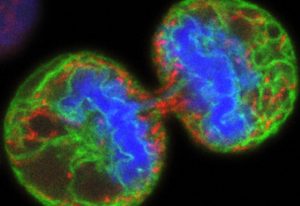
Science & Technology
Collaboration between scientists reveals collaboration between lipids.
2015
sciencescience-technology
21 July 2011
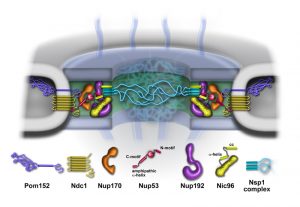
Science & Technology
A fungus that lives at extremely high temperatures could help understand structures within our own cells. Scientists at the European Molecular Biology Laboratory (EMBL) and Heidelberg University, both in Heidelberg, Germany, were the first to sequence and analyse the genome of a heat-loving fungus,…
2011
sciencescience-technology
20 April 2011
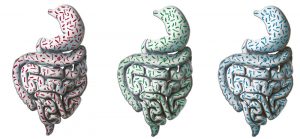
Science & Technology
In the future, when you walk into a doctor’s surgery or hospital, you could be asked not just about your allergies and blood group, but also about your gut type. Scientists at the European Molecular Biology Laboratory (EMBL) in Heidelberg, Germany, and collaborators in the international MetaHIT…
2011
sciencescience-technology
4 March 2010
Science & Technology
The thousands of bacteria, fungi and other microbes that live in our gut are essential contributors to our good health. They break down toxins, manufacture some vitamins and essential amino acids, and form a barrier against invaders. A study published today in Nature shows that, at 3.3 million,…
2010
sciencescience-technology
31 January 2010
Science & Technology
The last ancestor we shared with worms, which roamed the seas around 600 million years ago, may already have had a sophisticated brain that released hormones into the blood and was connected to various sensory organs. The evidence comes not from a newly found fossil but from the study of microRNAs…
2010
sciencescience-technology
26 November 2009
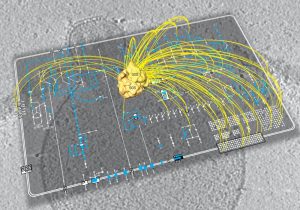
Science & Technology
What are the bare essentials of life, the indispensable ingredients required to produce a cell that can survive on its own? Can we describe the molecular anatomy of a cell, and understand how an entire organism functions as a system? These are just some of the questions that scientists in a…
2009
sciencescience-technology
3 February 2005
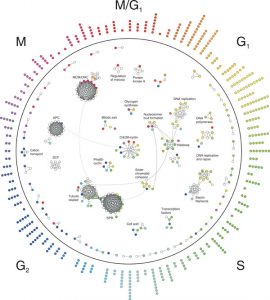
Science & Technology
Most things that happen in the cell are the work of ‘molecular machines’ – complexes of proteins that carry out important cellular functions. Until now, scientists didn’t have a clear idea of when proteins form these machines – are these complexes pre-fabricated or put…
2005
sciencescience-technology
No matching posts found




























